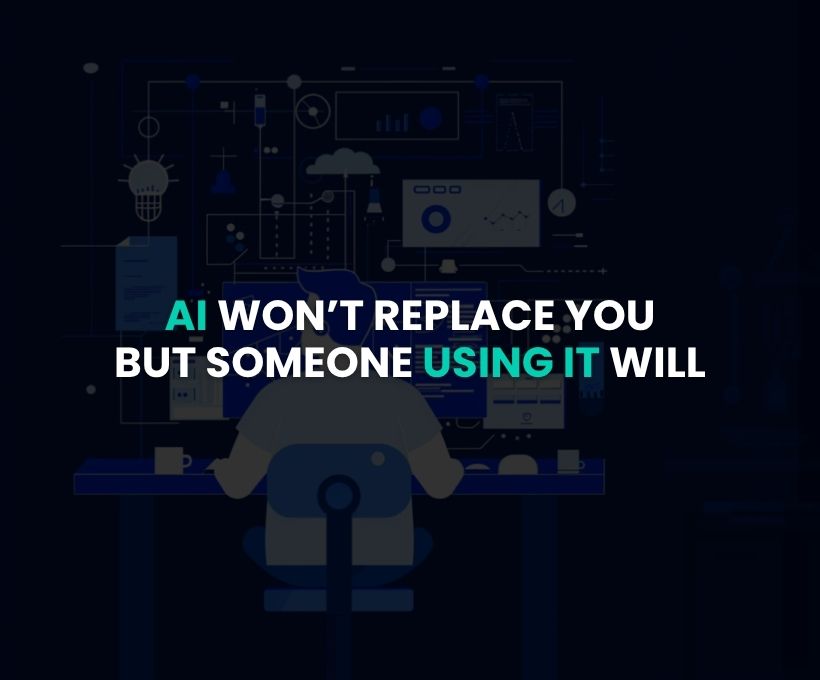I’ve spent the last few years helping businesses and individuals automate the boring parts of their workflows using AI. But lately, a growing trend has pushed me to write this post—not about a project, but a mindset shift that’s becoming urgent.
A leaked memo from Fiverr’s CEO recently summed it up best:
“AI is coming for your job. Heck, it’s coming for my job too.”
“It won’t replace you—but someone using AI will.”
That hit hard. Not because it’s shocking, but because it’s true—and I see it happening already.
The Silent Shift That’s Already Happening
Most people think of AI as something futuristic. Something big companies use. Something optional. But that mindset is already creating risk.
The truth is, AI is changing workflows right now—quietly, quickly, and often behind the scenes. It’s making people faster at writing emails, summarizing research, organizing leads, managing documents, and automating reports. It’s helping freelancers generate blog drafts in minutes, or entrepreneurs run customer support without lifting a finger.
And while most people are debating whether AI is good or bad, others are simply getting ahead by using it.
What I’ve Seen on the Ground
Since I work on automation projects, I get to peek behind the curtain of how people run their businesses. And I’ve noticed a pattern:
- The people who adopt AI early don’t have to be tech-savvy.
- They’re not necessarily the smartest—they’re just curious and adaptive.
- They save hours every week, cut costs, and scale faster.
I’ve helped non-technical people go from zero to fully-automated systems, simply because they were open to trying. They didn’t know how to “do AI” — they just had problems they wanted solved. That was enough.
A Wake-Up Call from Fiverr’s CEO
When Fiverr’s CEO Micha Kaufman told his employees that no one—not even him—is safe from AI’s disruption, he wasn’t being dramatic. He was being honest.
He encouraged his team to evolve fast, become prompt engineers, and take AI seriously—not in 5 years, but now.
It wasn’t just a company announcement. It was a warning to every professional, freelancer, and knowledge worker out there: You either adapt, or you risk becoming irrelevant.
What You Can Do Today
Many people feel AI is too technical or time-consuming — but you don’t need to dive in alone. Here are a few easy ways to start, even if you’re not technical:
- Try simple AI tools like chatbots, summarizers, or automation platforms — if possible. Just 5–10 minutes of testing can spark ideas.
- Talk to someone already using AI. A short conversation can save you hours of confusion. In fact, that’s often how many people I’ve helped got started — they just asked.
- Explore how AI could help you — not in general, but in your daily grind. What tasks do you repeat? What slows you down?
- Think about automation — and if you’re not sure what’s possible, reach out to someone who is.
- Above all, stay curious. You don’t have to be an AI expert — you just need to be willing to explore.
You Don’t Need to Master AI — You Just Need to Start Using It
You don’t have to code, build models, or become a machine learning engineer. But if you can pair your skillset with AI, you immediately become more valuable, more efficient, and more future-proof.
And those who don’t? They’ll find themselves outpaced by others who are simply more AI-aware.
If you’re wondering where to begin, or if you’re curious how AI could fit into your world, let’s talk. Sometimes, one conversation can change your entire approach to work.
